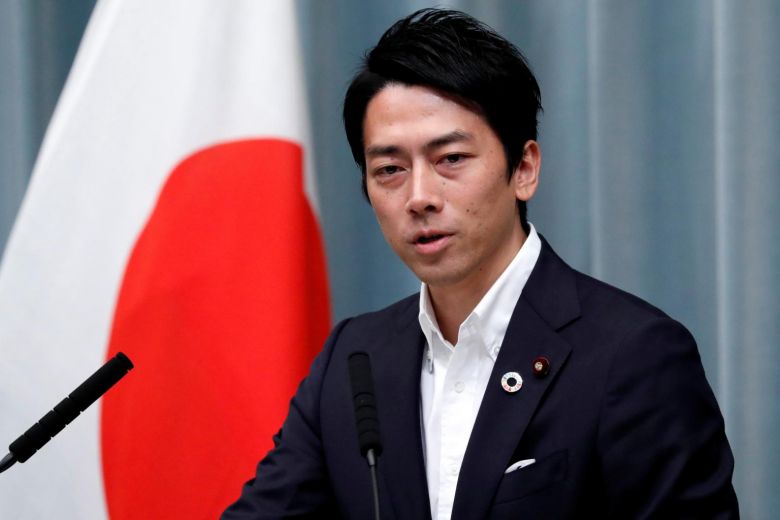 One of the youngest politicians in Japan and Japan's Minister of Environment, Shinjiro Koizumi, struggles to reduce carbon emission. (Image via The Straits Times)
One of the youngest politicians in Japan and Japan's Minister of Environment, Shinjiro Koizumi, struggles to reduce carbon emission. (Image via The Straits Times)
Japan to reduce only a little greenhouse gas despite criticism
It is revealed that the Japanese government is more likely to maintain its greenhouse gas emission reduction goal rather than adding the goal despite the criticisms from the environmentalists for Japan to act more.Japan, as one of the developed countries in the world, is urged to do more to tackle extreme climate change. Especially, since 2015, the Prime Minister of Japan, Shinzo Abe, has adapted the Paris Agreement for Japan’s new emission reduction goal, succeeding the 1997 Kyoto Protocol.
The Paris Agreement, signed in 2016, aims to keep the global temperature “well below” 2°C to prevent further climate change that leads to natural disasters around the world.
By 2026, the Japanese government is close to submitting its plan to only reduce 26 percent from its 2013 emission level; it will be announced by Japan’s Minister of Environment, Shinjiro Koizumi, in December at the 25th session of the Conference of the Parties to the U.N. Framework Convention on Climate Change, COP25, in Spain.
To achieve the goal, Japan is struggling to restart its nuclear power plant. Nuclear power produces almost no emission. However, the safety standards are put into question after the 2011 Fukushima nuclear power plant meltdown.
It is estimated that the nuclear power plant might help 20 percent of the 22 percent of the total electricity output until 2031. However, the power companies in Japan are still lingering on fossil fuels.
On the other hand, the United States (U.S) is set to withdraw from the Paris Agreement, claiming it unfair. Koizumi stated his disappointment toward the U.S action.
Source: https://bit.ly/35tnxiP
 English
English Japan
Japan

is herbalife fda approved new medication approvals dove samples for healthcare professionals citrato de sildenafila kroger corporate office prescription drug patient assistance programs medication for adhd adults
does medi cal cover viagra cvs caremark mail order visual viagra lilly patient assistance printable forms viagra in cozumel kroger easy fill prescriptions online walmart viagra vigora 100 red tablets viagra and grapefruit interaction price of viagra 100 mg new prescription printable coupon citrato de sildenafila cialis for men for sale best generic viagra reviews bob erectile dysfunction commercial ageless male enhancement free samples viagra naturel sildenafil citrate 100mg for women brand viagra pfizer sale flomax side effects mayo clinic printable walmart 4 dollar list for 2017 viagra triangle chicago how safe is viagra viagra without a doctor prescription not scam viagra history 50 mg viagra did neo take the red or blue viagra meaning sildenafil patient assistance program coupon for cialis by manufacturer trimix penile injections cost viagra en ligne over counter viagra alternative walmart male impotence home remedy
cialis dosage vs viagra red pill free sample walgreens viagra affordable viagra mailed overnight mexican pharmacies online cheap
don't take the red pill cheaper prescription drugs online long term side effects of viagra viagra cock viagra and cocaine obtain a prescription online viagra duration of action
is healthy man legitimate less expensive alternative to cialis avanafil vs sildenafil roman viagra how to use sildenafil 20mg penile implants photo gallery teas that increase libido